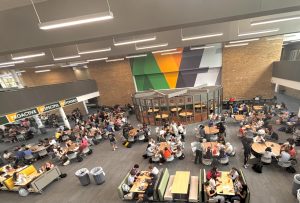Quality sleep impacts performance
October 7, 2015

People need a set time to wake-up from sleep. That time will depend in part on a person’s circadian clock, or chronotype. People can figure out how much sleep they need to feel alert by working backward from a wake-up to find a suitable bedtime.
“I tend to be more of a night person than morning person, but it also depends on the time of year on whether or not I like to get up early,” senior Sneha Rajagopal said.
According to a study conducted by the New York Times, using phones and electronics before sleeping can prevent a good night’s sleep.
Any light disrupts sleep, but blue wavelengths, the kind of light emitted by electronics such as TVs and smartphones, tell a part of people’s brains, the suprachiasmatic nucleus, to suppress the release of melatonin, a hormone associated with the onset of night and drowsiness.
“I don’t like to use my phone right before bed but it’s hard not to use a computer before bed because I’m usually finishing homework,” junior David Wang said.
If people have a hard time falling asleep, people can try visualizing step-by-step movements of one activity. If that does not have a soporific effect, people can get up and do something screen-free until they feel tired.
“I usually count numbers when I can’t fall asleep. I know other people like to get up and read if they can’t sleep,” sophomore Sarah Sotropa said.
For more information concerning sleep, click here.






